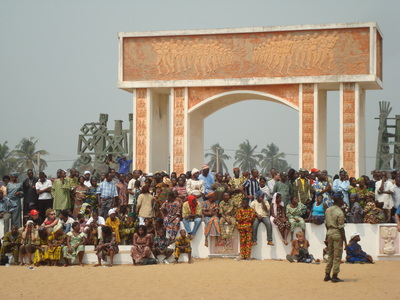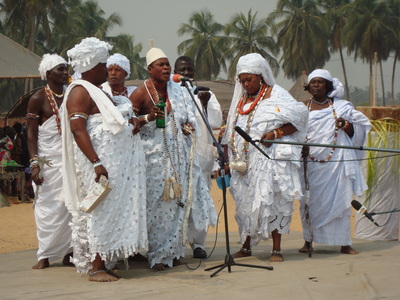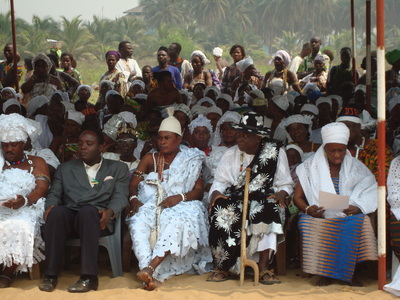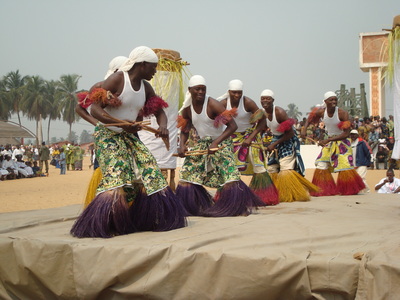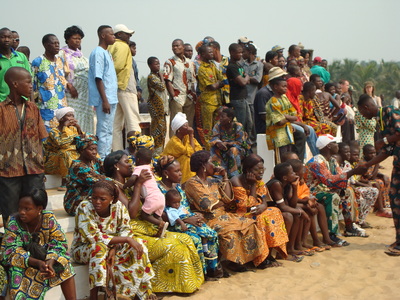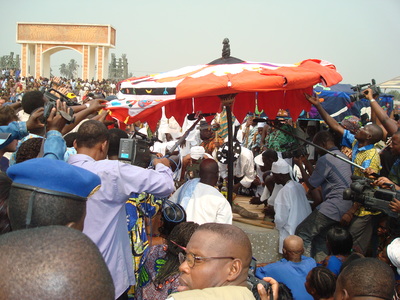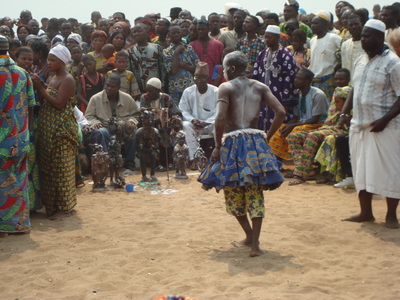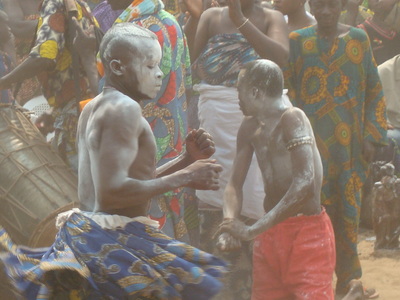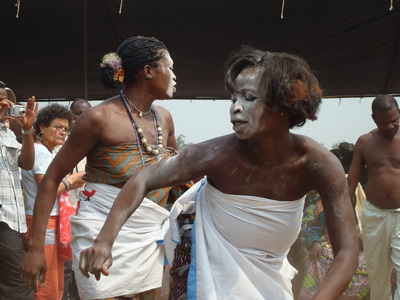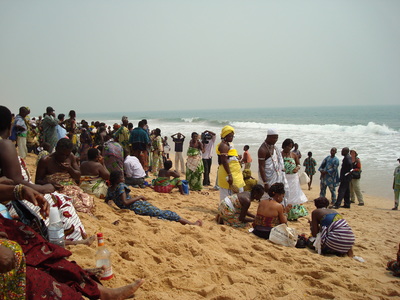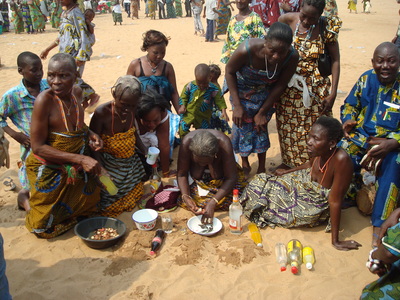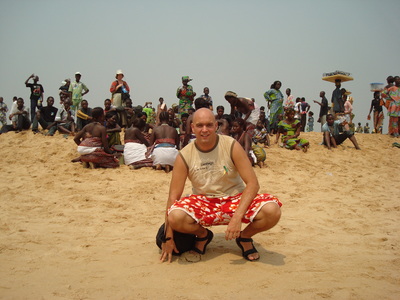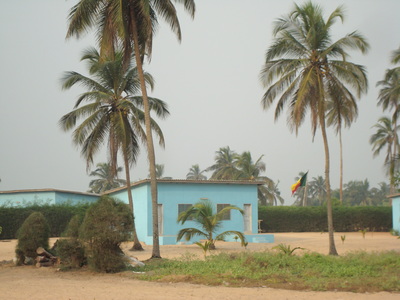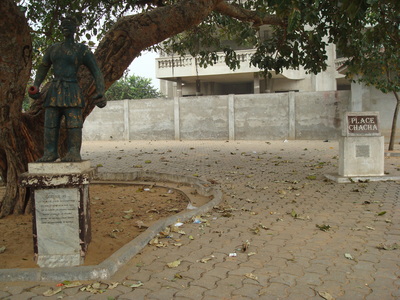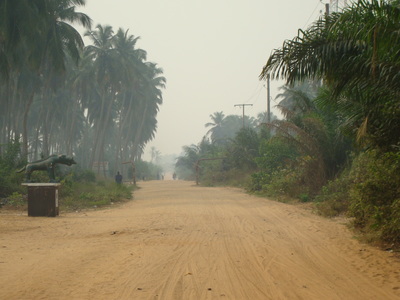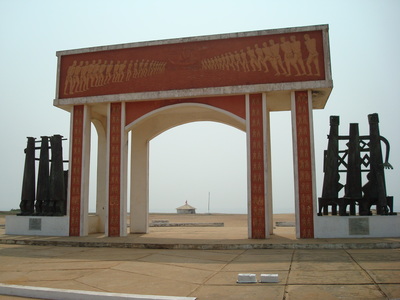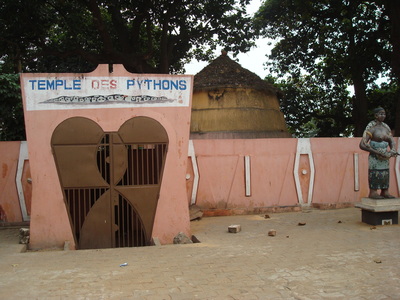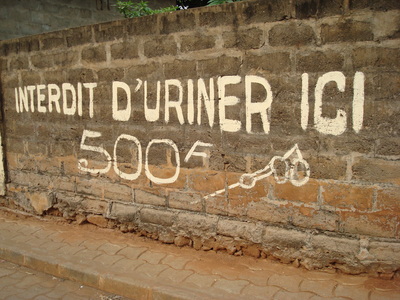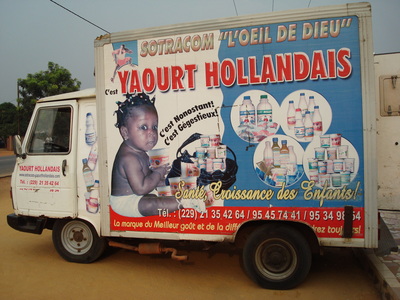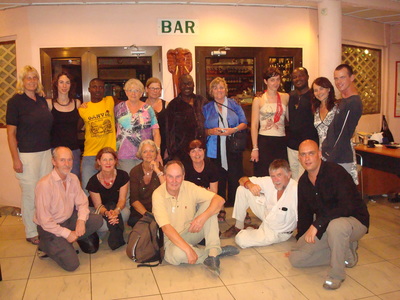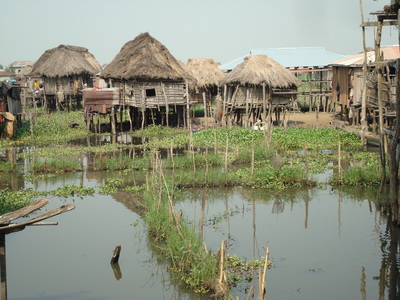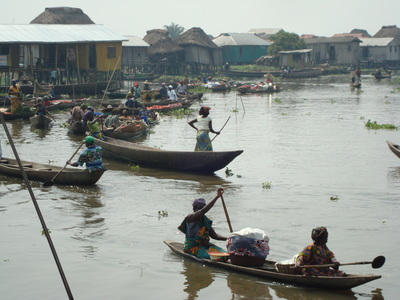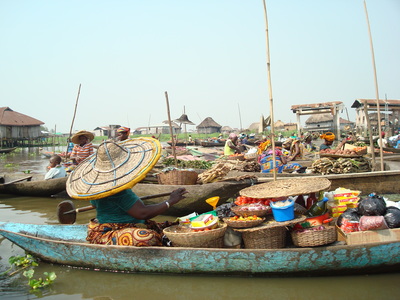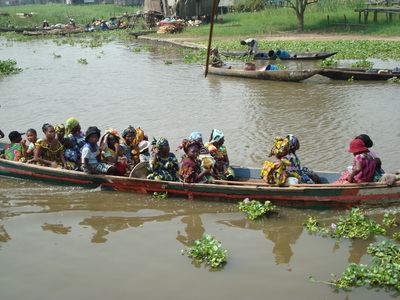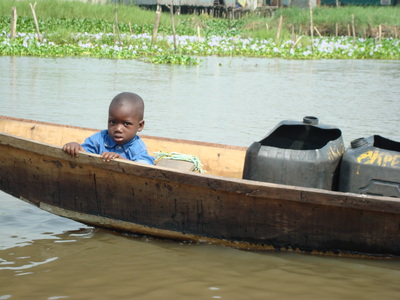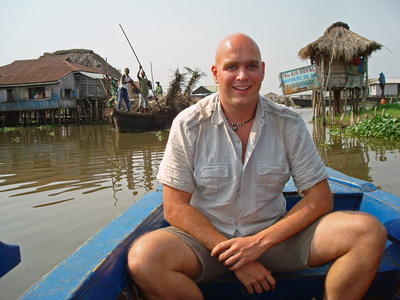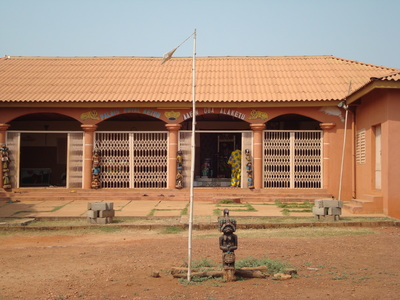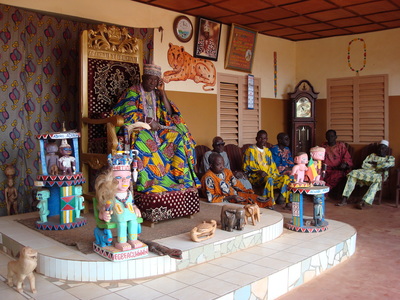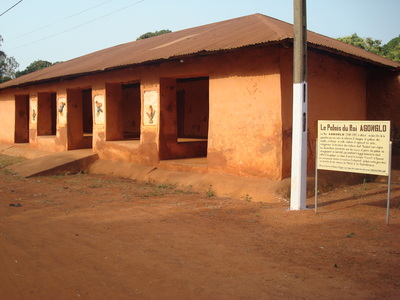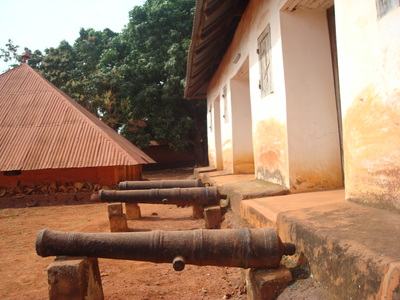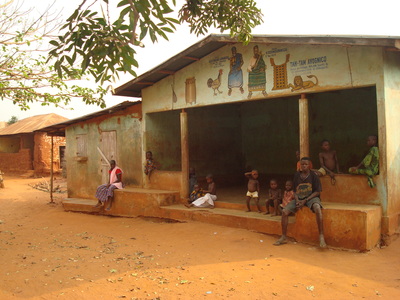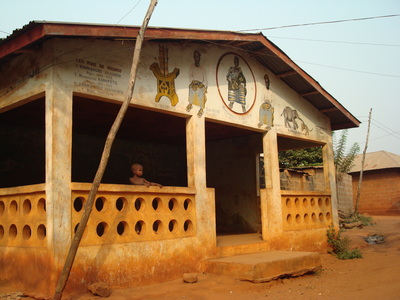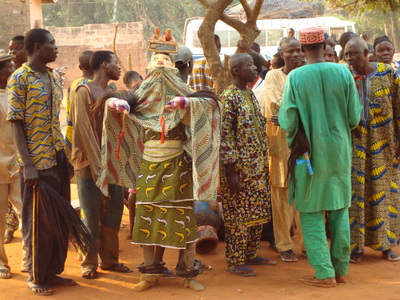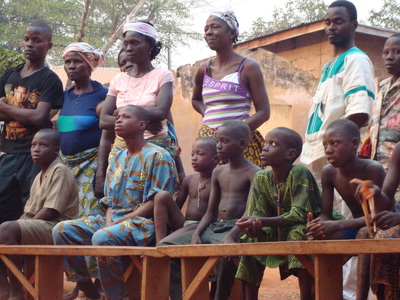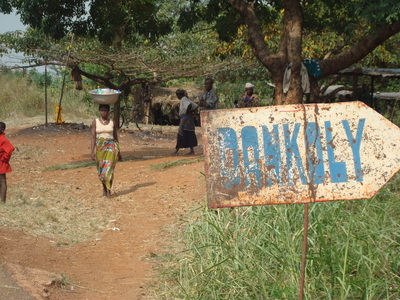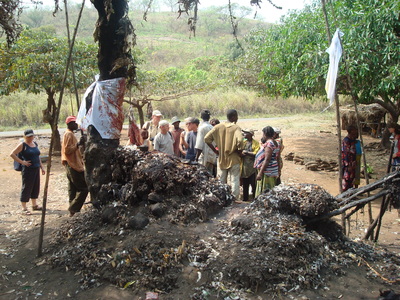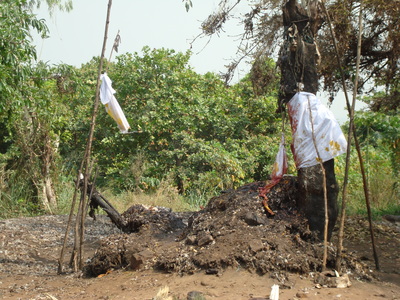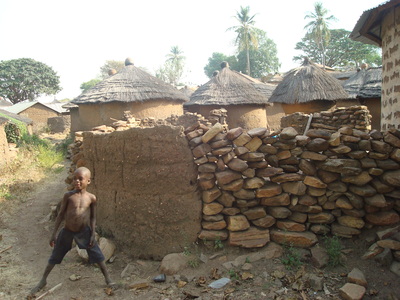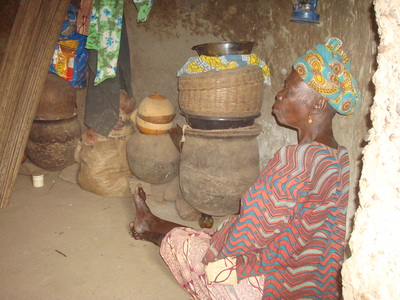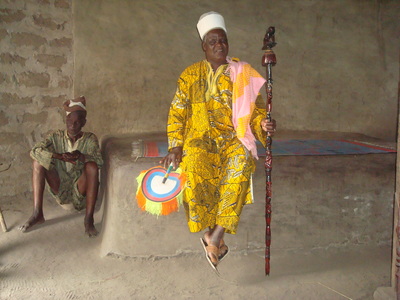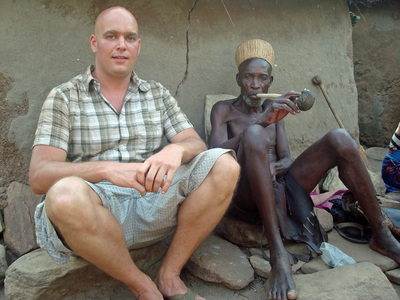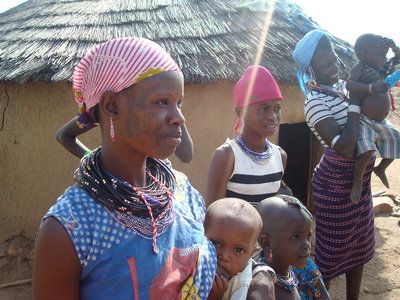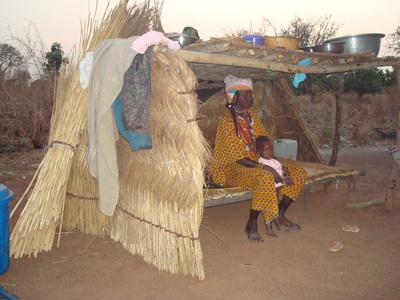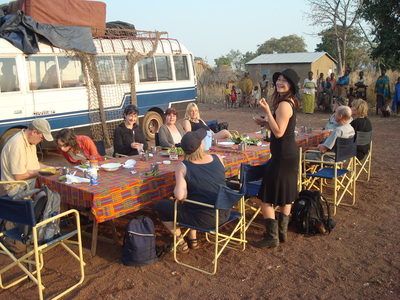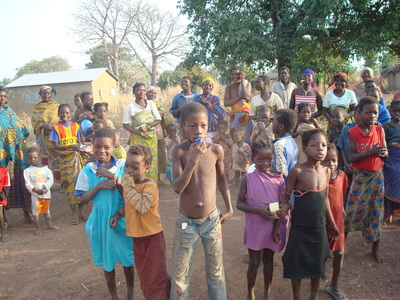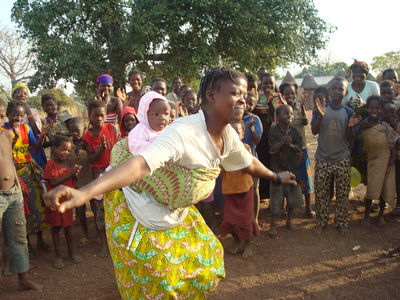|
The 10th of January is a national holiday in Benin called Voodoo Day. On this day thousands of worshippers of the mystical African cult gather in Ouidah. We witnessed the people making sacrifices to various gods and praying respected shamans for help. On the beach people were drinking and participating in all kind of rituals.
0 Comments
Our last destination in Benin was the coastal town of Ouidah. During colonization this was a centre of slavery. Slaves were taken on the Route des Esclaves from the Place Chacha to the beachfront to be shipped away from the African continent. The memorial 'Door of No Return' on the beach reminds the people of this sad history. Nowadays the city plays an important role for voodoo religion having big celebrations on national Voodoo Day.
We took a boat across the Nokoué lake to visit the floating village of Ganvié. The village was created in the sixteenth century by the Tofinu people to avoid Fon warriors capturing slaves for sale to European traders. It is probably the largest stilt-village on the African continent.
We were 'allowed' to enter the Royal Palace of the Yoruba King who rules the Yoruba kingdom. He is one of the few people I saw last weeks having a mobile phone!
We had a look at the royal palaces of the former Dahomey kingdom in Abomey. Generations of Dahomian Kings fought wars, maintained female warriors, and sold slaves to the Europeans to equip themselves militarily. Nowadays the palaces are empty. In the afternoon we went to a nearby village to watch Yoruba people performing the masked Guèlèdè dance.
The voodoo religion is one of the biggest animistic religions in this area of Africa. In the middle of nowhere is the only Voodoo shrine of Benin. This occult place for revenge is often visited by pilgrims to curse their enemies. Sacrifices of blood, oil, feathers and alcohol were given to the earth here.
We crossed the border from Togo to Benin and the scenery stayed pretty much the same. Small villages build from mud where all people lived in poverty. Each tribe has its own traditions and some have a king and a medicine man. Because the people were not used to foreigners, a bus full of Europeans was something all locals had to see. The same happened when we were having breakfast at the campsite. We had a lot of visitors!
|
Places in Benin
All
Benin Archives |

